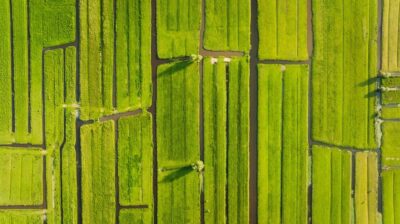Main content
Introduction
In this contribution on scientific publishing some issues of particular relevance to international health are highlighted, from the perspective of an editor of Tropical Medicine and International Health, the official journal of the Federation of European Societies for Tropical Medicine and International Health (FESTMIH).
It is of course very important that research findings are shared with the scientific community, fellow researchers, programme managers, policy makers, but also with workers in the medical field, particularly in low-resource countries in the domain of tropical medicine and international health. While an evidence-base for tropical medicine is of importance to workers in this field, the evidence for public health interventions can usually not be immediately translated into practice by individual public health practitioners, but require the action of policy makers and programme managers.
Accessibility of scientific publications
As scientific journals must be financially viable, the cost of publication (in print or on-line) must either be borne by readers (subscription fee) or by the authors (page fee). The latter is called “open access”, although in this case access is not free of charge for authors. It is clear that this can be an obstacle for authors from low-income countries to publish. Some journals are entirely sponsored by societies or otherwise (e.g. Memórias do Instituto Oswaldo Cruz), others have a mixed model (e.g. Tropical Medicine & International Health). An increasing number of agencies funding research from public funds, demand “open access”, and will include page charges for researchers in their grants.
Journals can be accessed through Medline or Pubmed for a fee, or through on-line access paid for by scientific institutions. SciELO (Scientific Electronic Library Online) is a Spanish-Portuguese language equivalent serving Latin America.
The HINARI (http://www.who.int/hinari/en/) Access to Research in Health Programme was launched in January 2002 by WHO together with major publishers to enable local, not-for-profit institutions in low- and middle-income countries to gain access to one of the world’s largest collections of biomedical and social science literature, and in turn, contribute to improve world health.
Among the top 10 journals in the area of tropical medicine and international health all but one (Memórias do Instituto Oswaldo Cruz, Brasil) originate from Europe or the USA. Some initiatives attempt to counterbalance this: African Journals Online (http://www.ajol.info/) thrives to make African-origin research output available to Africans and to the rest of the world. Asia Journals Online (http://www.asiajol.info/) is a similar portal to scholarly journals published in South and S.E. Asia.
Quality of scientific publications
The quality of scientific research is assured in various ways. Peer review is the cornerstone of quality assurance. In addition various journal ranking systems are operational: the Impact Factor of the ISI Web of Knowledge, the SJC Factor of SCOPUS and Google Scholar Metrics.
The impact factor (IF) is determined by the average number of citations per original research article over the first two calendar years. It can also be summarized by scientific institution and by researcher; some academic institutions use the IF for the continuous assessment of staff, departments and research groups.
While easy to calculate, the IF does not reflect societal relevance or public utility of a scientific publication. An alternative is hard to find; to some extent the number of downloads of an article reflects public utility. As far as “relevance” or “impact” goes, the most relevant journal is the one that gets an article in the hands of the most people who will use the findings as evidence-base in their work as policy makers, programme managers and health practitioners.

Challenges to use research evidence
There is widespread evidence of failure to implement health interventions that have been demonstrated to be cost-effective by high-quality research. Low-income countries face additional challenges to using research evidence including: the weakness of their health systems and a lack of access to evidence; operational research requires much more attention, as it can reveal hindrances, and remedies, for implementation of health interventions.
Scientific publishers and editorial boards can to some extent improve societal relevance of published research, for instance by providing a forum for operational research.
Publishers can play a more substantive role by providing “open access”, joining HINARI, and/or waiving fees for downloading published material (some journals allow free access twelve months after publication or of selected key materials, e.g. Tropical Medicine and International Health).
Funding agencies and programme managers (e.g. through research priority setting workshops), however, remain more directly influential in steering the research agenda.
Conclusion
In comparison with the Belgian and German societies, a considerable number (142 of 988) NVTG members have a personal TMIH subscription (36 hardcopy, 106 on-line). In addition, students and staff members of academic institutions have on-line access through their institutions. As co-authors of original research and surely as authors of editorials and reviews, however, the Dutch are lagging behind, while the Dutch are leaders in various areas of tropical medicine, safe motherhood and sexual and reproductive health. May this serve as a call to Dutch experts in tropical medicine and international health to fill this gap!
References
- Mgone C, Volmink J, Coles D, Makanga M, Jaffar S, Sewankambo N. Linking research and development to strengthen health systems in Africa. Trop Med Int Health 2010; 15: 1404-06.
- Haines A, Kuruvilla S & Borchert M (2004) Bridging the implementation gap between knowledge and action for health. Bulletin of the World Health Organization 82, 724-731. Discussion 732.



















































